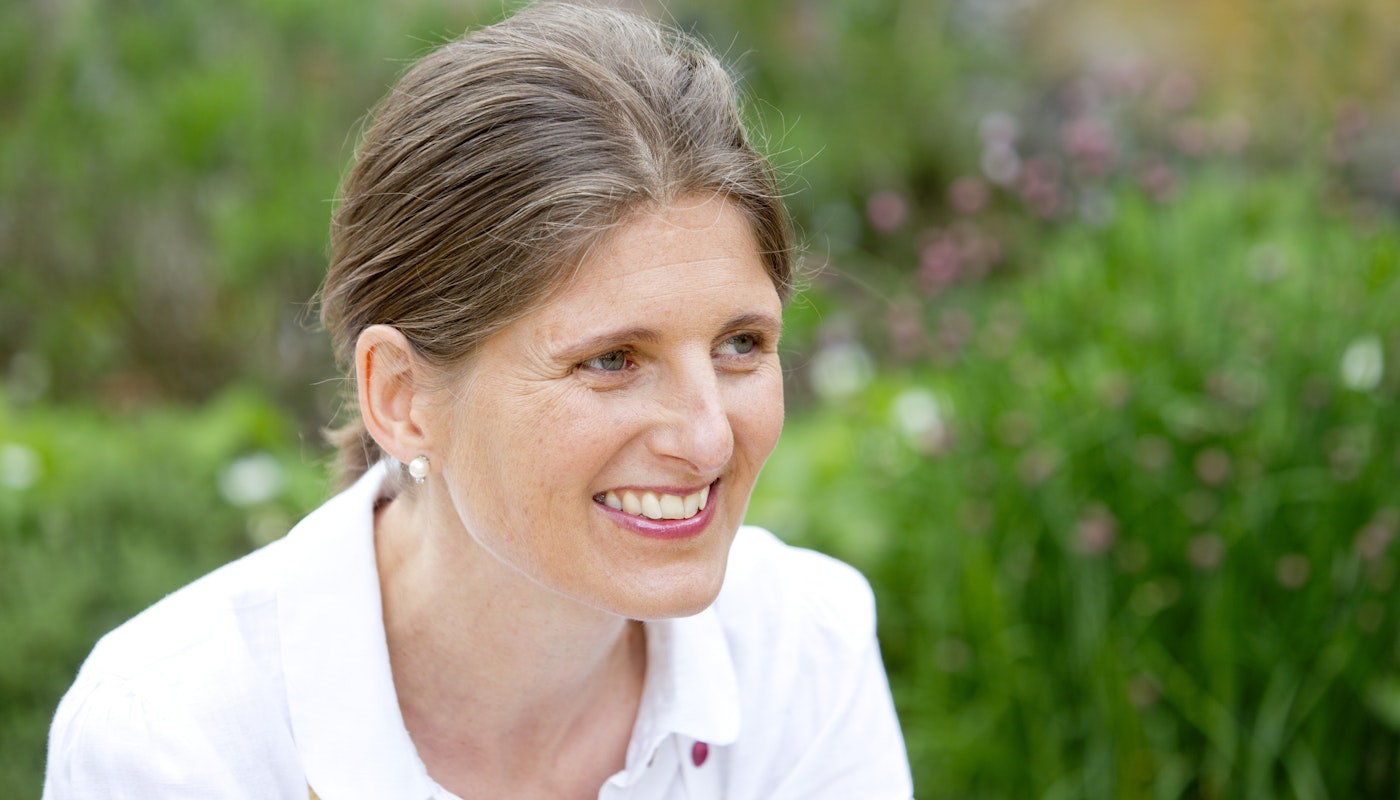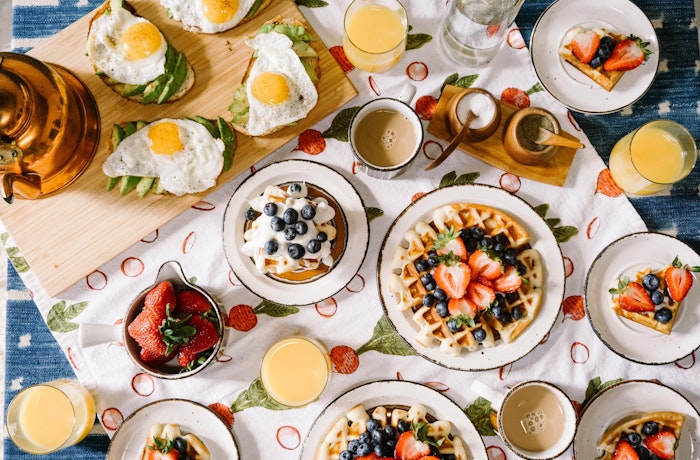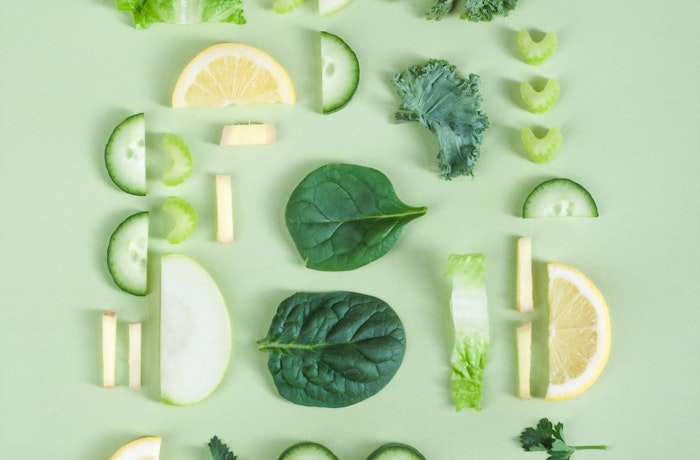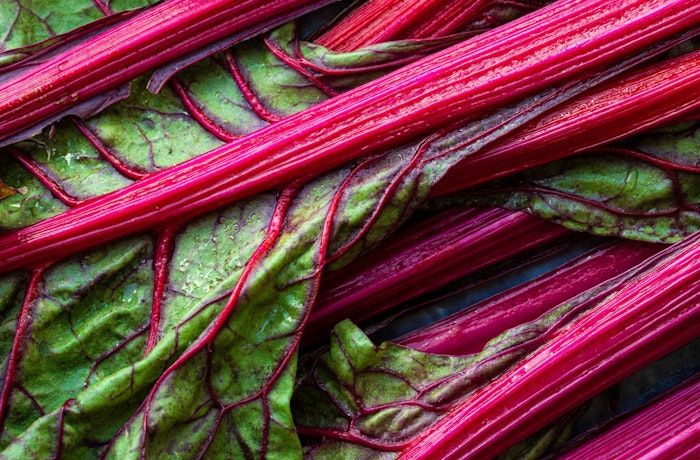With a recent report having concluded that British toddlers eat more processed food than any of the eight other countries in the study, it is more important than ever that we turn the tide and instil healthier eating habits in our children.
We asked Lucinda’s advice, both on what this means for our little ones’ health – and how to make the changes and nutritionally support our growing children at these crucial moments in their development.
Lucinda, thank you for chatting with us. A study recently showed that ‘under-5s in the UK have around the highest consumption rate of mass-produced, ready-made foods, with these products making up nearly two thirds of British children’s average energy intake.’ It’s very sobering. Can you tell us a little about that study and why it’s so important?
This report by First Steps Nutrition Trust is due to be published within the next few weeks and highlights a large study carried out by researchers at the University of Sao Paulo in Brazil comparing the diets of over 66,000 children from eight countries. These include cohorts of children from the UK, Australia, USA, Mexico as well as Brazil. The study found that around 61% of the energy intake from food eaten by British children aged two to five years old, comes from ultra-processed shop-bought convenient foods rather than home-cooked food.
Another study published in 2019 found that older children were consuming up to 74.9% ultra-processed foods. And it gets worse as they gain more independent choice of foods. It seems that some teenagers and young adults consuming a staggering 82.9% of ultra-processed foods in their daily diet.
Last year, a study found that school lunches are partly to blame, and in primary schools the average school lunch was 72.6% ultra-processed and secondary schoolchildren lunches were worse at 77.8%. Higher ultra-processed food intakes were even greater in those kids who opted for a packed lunch, especially those in lower income households.
There’s now a lot of evidence that diets high in ultra-processed foods are associated with obesity, inflammation, chronic diseases and lower education and life outcomes. And it is thought that keeping ultra-processed food intake under 20% is ideal to raise a healthy child, and so it is a matter of reducing consumption rather than cutting these foods out entirely.
Why and how do you think we have got to this point?
Today’s food choices are both complex and emotive, as well as deep seated in today’s British culture. But we have to look at the big picture.
This study was looking at diet quality, and specifically at diet types linked to obesity, as the association between ultra-processed food and obesity is quite strong. And there is a paradox that the obesity in developed countries such as the UK and US is predominantly among the poorer in society, while in developing countries it tends to occur more amongst the rich.
So, the answer may be that in poorer countries only the rich can afford ultra-processed food; while in richer countries like the UK and US, even the poor can afford it. The research notes that school children are more susceptible to aggressive marketing of ultra-processed foods, which can cause immediate and long-term changes in their food preferences, which hugely increases the risk of obesity.
For many years, the concept of cooking from scratch using locally grown food has not been as strong in Britain as it is in many other countries. For instance, due to our climate, we need to import more seasonal foods from abroad to help nourish the population in our little island. Our winters are long and the variation of food we can grow is quite limited. We simply don’t have the abundance of fresh stuff available to us, compared with many of our European neighbours. So, we are more used to eating packaged food with long shelf lives.
Since we are time-poor and these days kids tend to be fussy eaters, it is often so much easier to pick up a packet of food from the supermarket than to spend time in the kitchen cooking. And our food packaging and the investment into the development of ‘blissy’ flavour and texture in these ready-to-eat foods are so enticing for little people. Snacks and ready meals are created by biochemists to be addictive, and it is hard to for us and our kids to turn them down.
Before we get on to what to do about it, can you explain just why giving children a balanced and nutritious diet is imperative? How does a bad diet impact them physically and mentally?
Every cell in our body needs nourishment to thrive, which comes from the food we eat, the water we drink and the air we breathe. There are around 30 different vitamins and minerals that humans need to be healthy. These key nutrients help with child development, mental health, immunity and metabolic health as well as helping them to grow.
If you cook a balanced diet from scratch then it is likely that your children will be getting the nutrition they need. However, as soon as you start serving them convenient shop-bought snacks and meals, then this is when things can run into trouble.
This is because food scientists develop ready snacks and meals with the priority for shelf life, palatability and also to keep costs as low as possible. The nutritional value of the food tends to be a bit of an afterthought. Most shop-bought snacks do not contain some of the key nutrients needed for child development such as iron, calcium, zinc and omega 3, and instead they mainly contain starches, seed oils and additives.
Even when they add nutrients back after processing, in the form of fortification, it tends to be much lower quality and less absorbable than the real thing.
Toddlers and young children can, famously, be very picky with what they will and won’t eat. What advice would you give parents who are struggling with this? It can be easy to cave to less nutritious options when we just want them fed…
I am parent of three kids, so I totally understand this dilemma! Picky eating, food aversions, and cravings for snacks are very real and usually become more pronounced when the child has a shortfall in an important mineral called zinc. This can easily become depleted after illness.
Zinc is a key nutrient for creating our gastric juices and a healthy sense of smell and taste. Low zinc can also contribute to sensory issues with textures. You get zinc in seafoods, fish, meat, dairy, nuts, seeds and wholegrains which are not on the usual list of toddler day-to-day foods!
Another thing to consider is gut health. When the gut microbiome is out-of-sync, often so are food choices and cravings. Live yoghurt, kefir, cultured foods and fresh fruit and veg as well as probiotic supplements can help to create a better balance in the gut flora which then can turn on the neural pathways that crave the good stuff.
Another issue can be portability of food. Toddlers and young kids often need on-the-go food as they tear around playgrounds. What snacks would you recommend to fill the in-between, post-nursery or school hunger gap?
Snacks for kids do need to easy for parents to carry around/ Good options are home-made cookies, muffins and energy balls. Fruit, crunchy veg sticks and little sandwiches are also speedy options to help tide them over.
It is a reality that many parents are very time poor – for those that need to grab snacks on the go, what would be your preferred choices from the supermarket?
It’s another paradox that we are so time-poor when previous generations had so much more to do without washing machines, vacuum cleaners, cars, supermarkets and food processors. But my heavens, we get a lot more done!
It certainly can be hard to cook from scratch all the time. Things that we sometimes buy on top of fresh fruit are roasted chickpeas, olives, cheese slices, seed mixes and dried fruit.

In a cost-of-living crisis, some people can be put off by recipes that require huge numbers of ingredients or very expensive ingredients. How do you manage to keep little tummies healthy as well as keeping bank balances in reasonable nick too?
Eat seasonally and shop smarter. Before Christmas, Lidl were selling carrots for 19p a kg and parsnips and swedes for 19p per 500g. Remember that the cheapest non-organic ingredients you can buy are still probably better quality than what is lurking in ultra-processed food.
In terms of snacks, it is usually much more cost effective to make a batch at home rather than buy ready-made snacks and you don’t need expensive complex ingredients to make these. A batch of 15 muffins makes 15 portable nutritious snacks! Try my Green Goodness Muffins or Cinnamon Apple Muffins.
I create a weekly recipe for our weekly newsletter which is quick and easy. My best friend is my freezer which stores a whole assortment of snacks that defrost in minutes.
As for mealtimes, how can we encourage young kids to pack in the veg and protein and really support their gut health too? Do you have any favourite meals for inspiration?

It can be hard finding foods that are both child-friendly and nutritious and I hope my recipes hit the mark with veg and good quality protein always incorporated.
I always try and add in a healthy twist to a nursery food classic and popular recent recipes have been Cosy Sausage Casserole and Scandi Venison Meatballs and for those who like crunchy beige food try my Cheesy Pumpkin Monster Waffles.
Breakfasts marketed at children (and indeed adults!) are often full of sugar, as well as unnatural ingredients. To swerve the variety pack cereals so beloved of young children, what would you advise offering that will get them eating good food without grumbles?

I always recommending making breakfast changes at the weekend when there is less rush! Try and add in something new rather than taking their favourite brekkie away. Over time aim to go more savoury rather than sweet which could be something simple like scrambled eggs on sourdough toast.
If they are craving sweet at breakfast then you can try a Choccie Orange Porridge or Apple & Cinnamon Buckwheat Waffles.
Pudding can be a tricky battleground too, with children wanting the sweet things that are so well marketed to them. Meanwhile so many of the ‘healthy’ treats are anything but. What sweet(ish) treats would you feed to little ones?

I think it is perfectly ok to give kids pudding if they have had a good enough main course and this follows a healthy dose of protein and healthy fats (and ideally one or two veg!). Natural Greek yoghurt with berries and a drizzle of honey or maple syrup or homemade jelly make easy pudding options. If they like crunch, then my Ultimate Rocky Road.
If you give one piece of advice to parents when it comes to ingredients to avoid when shopping, what would it be?
Avoid ready-made foods with long ingredient lists with words you do not recognise as food, and you will be well on your way to healthier food choices.
And if you could give any encouragement to parents struggling with avoiding processed foods for their little ones, what words of wisdom would you impart?
A child who is able to balance their blood sugar will be happier, more focused and easier to live with. So why don’t you try – just for three days – to give them a protein-packed breakfast and then only homemade snacks (again packed with protein and healthy fats). And then sit back and observe to see if their hangry meltdowns and irritability get a lot better. They usually do!
If this you are on a winning streak, then try to keep ultra-processed food intake to 20% or less a week. This means that out of the 21 meals and 14 snacks a week your child is eating, 7 can contain some ultra-processed elements without too much of a worry!
Lucinda Miller is the clinical lead of NatureDoc and runs a team of UK-wide nutritional therapists specialising in family nutrition as well as running an online health food shop at www.naturedoc.shop.
She has been practising as a naturopath for over 20 years, qualified in Functional Medicine and is author of the bestselling cookbooks The Good Stuff and I Can’t Believe It’s Baby Food. She is the mum of three and lives in Wiltshire.
For more on how to avoid ultra-processed food for little ones, do read her recent blog here.
By Nancy Alsop
March 2023





